
Fortune News | Mar 05,2022
The iconic blue taxi drivers colloquially known as 'Lada,' are considering the formation of a robust new organisation and advocate for their interests as frustration mounts over delays in receiving vehicles promised by Elauto Engineering Plc. Over 8,000 drivers are disillusioned and questioning the legitimacy of their initial deposits of nearly one billion Birr to the company in three years with only a little over 240 cars delivered.
The confluence of anxious drivers eagerly awaited the cars initially promised within four months. As inflation surges and the cost of the promised vehicles doubles to 1.2 million Br, drivers are growing sceptical about the transparency of the process, wondering if they were misled from the beginning. The discontent has escalated to the point where an association was accused of defamation and had its contract suspended six months ago.
The saga surrounding Addis Abeba's Ladas has spanned for four years, involving the suspension of duty-free privileges by the Ministry of Finance, the establishment of a new factory in Dire Dewa City by Elauto, and a growing animosity among the close to 200 associations representing the drivers.
Executives indicate that 540 semi-knock-down vehicles assembled for distribution to the drivers have been put at the Dire Dewa plant for the past eight months, inaugurated a year and a half ago with over half a billion Birr.
Esayas Tafesse, director of marketing at the Company, cited a three-month-old ordinance by the Ethiopian Customs Commission, which banned imports through partialised letters of credit, as the main culprit. He disclosed the assembled vehicles have been locked away only to ensure that the new ordinance would not jeopardise further imports.
He indicated progress in declaring the vehicles despite not specifying the number. Esayas argued the company had gone out of its way to actively seek finance for 3,000 cars from the Global Bank of Ethiopia, even though it was not contractually obligated.
"Distributing the vehicles would be to our advantage," Esayas stated.
Esayas revealed plans to distribute the vehicles in its fleet in the coming year if no external factors get in the way, signalling agreements with Bishoftu Automotive Industry and Lifan Motors.
While senior management at Elauto points to regulatory hurdles and changing policies as reasons for the delayed imports and distribution, the drivers allege reluctance from the company to take up loans from credit facilities.
Biniyam Melese, a representative of the Addis Abeba Lada Taxi Association, highlighted the challenges faced during the credit process, despite the initial agreement for 10,000 cars worth six billion Birr signed with the Commercial Bank of Ethiopia (CBE) three years ago. He noted changes in management and lending policies as contributing factors to the difficulties encountered in securing credit lines from 22 commercial banks.
According to Biniam, although the Association neared a deal with Amigos Saving & Credit Cooperative Society a few months ago, it was not picked up by the company and was later transferred to other dealers.
"The management and lending policies changed," he told Fortune.
Biniam underscores the struggles faced by drivers to adapt to a shifting landscape dominated by technology-backed taxi-hailing services offering newer models and smoother rides.
"Most remain idle during the day," he said.
The initial contract states a 120-day delivery schedule for the vehicles, subjecting Elauto to a 10pc penalty of the initial 130,000 Br deposit three months from the agreed date. Meanwhile, it stipulates a 20,000 Br penalty for breaches, compelling taxi owners to pay if they wish to withdraw their money. Approximately 600 drivers have registered to withdraw their depreciated deposits, further exacerbating the tensions between the drivers and Elauto Engineering.
The dissatisfaction also raises questions about the transparency of contracts and the protections afforded to drivers. Legal experts stress the importance of closely evaluating the terms and conditions agreed upon in contracts to address disputes and non-performance effectively.
Yehaulashet Tamiru, a lawyer with contractual business expertise, emphasised that contracts are binding to their stipulations. He highlighted the need to examine Force Majeure clauses, which relieve parties from obligations in exceptional circumstances that are impractical, illegal, or impossible to uphold their end of the contract.
The Russian-made Ladas are relics of Ethiopia's history under socialist rule in the 1970s. Their uncertain future underscores the broader challenges faced by traditional taxi services in adapting to evolving market dynamics dominated by technologically advanced competitors. As the discontent simmers among drivers, the proposed formation of a new organisation may signal a united front seeking resolution and fair treatment in the face of ongoing challenges.
Zerubabel Wendwesen, a representative from one taxi association, acknowledged the outdated nature of their cars and the inability to compete with taxi-hailing services. He lamented the rush to acquire new vehicles, which he believes blinded drivers from scrutinising the contract's original terms, leaving them with minimal protection.
He recalls a passionate rush to get new cars, blindsiding the drivers from meticulously going through the contract's original terms, which he now identifies as creating little protection for the drivers. Zerubabel indicates that most drivers have been struggling to make a living as the cost of living shoots up and their income diminishes by the day.
"We can't compete with the taxi-hailing services," said Zerubabel.
PUBLISHED ON
Dec 30,2023 [ VOL
24 , NO
1235]

Fortune News | Mar 05,2022

Sunday with Eden | Jul 15,2023
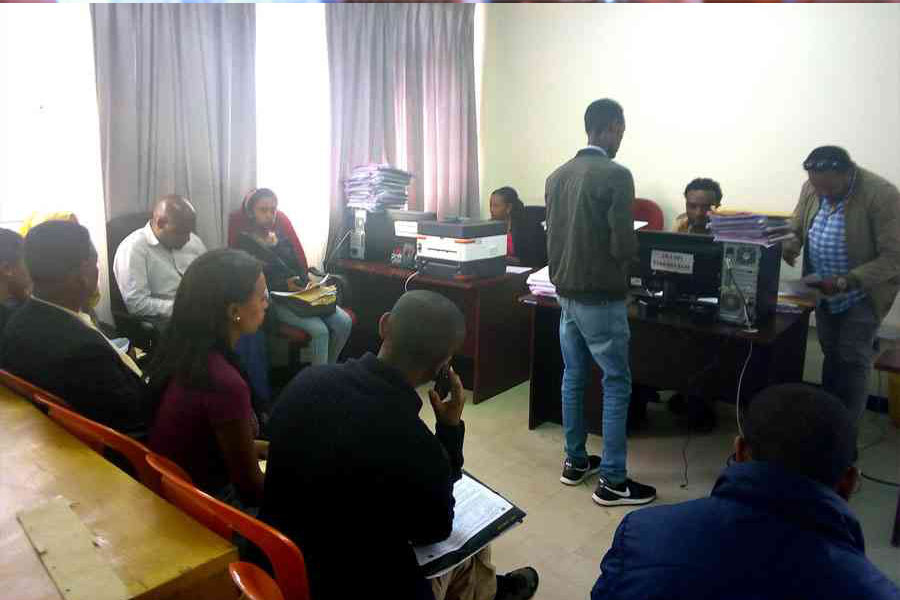
Agenda | Dec 23,2023
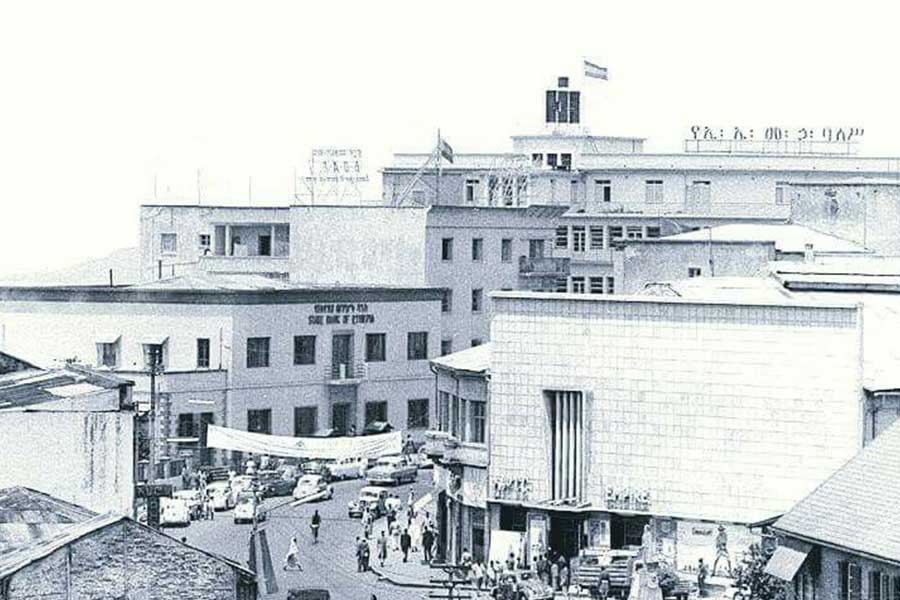
View From Arada | Feb 13,2021
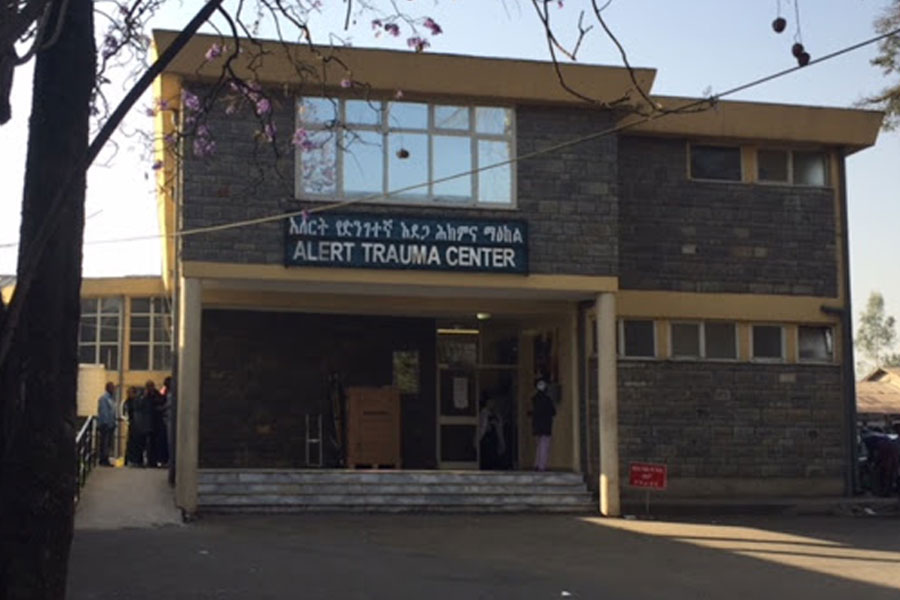
Fortune News | Jun 19,2021

Radar | Aug 11,2024
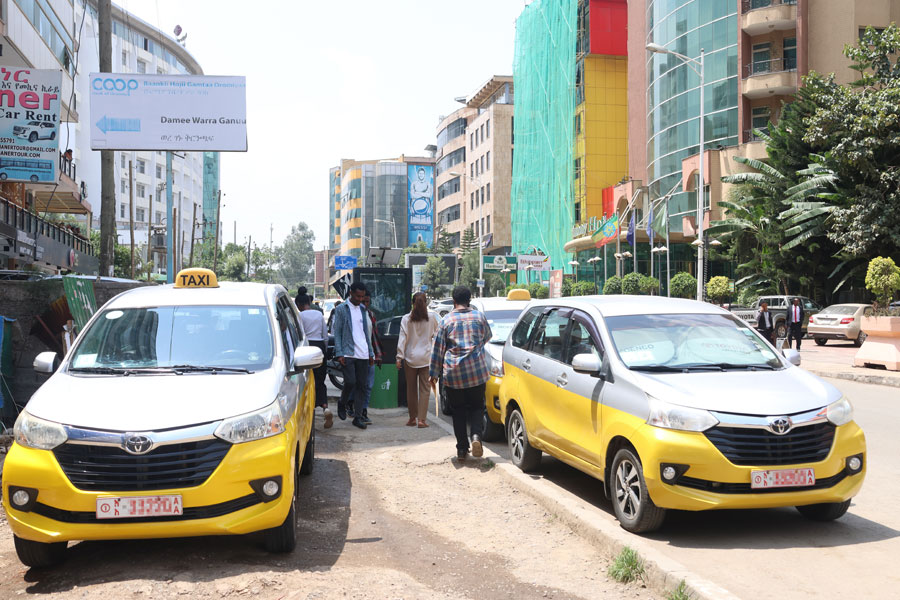
Agenda | Jun 08,2024
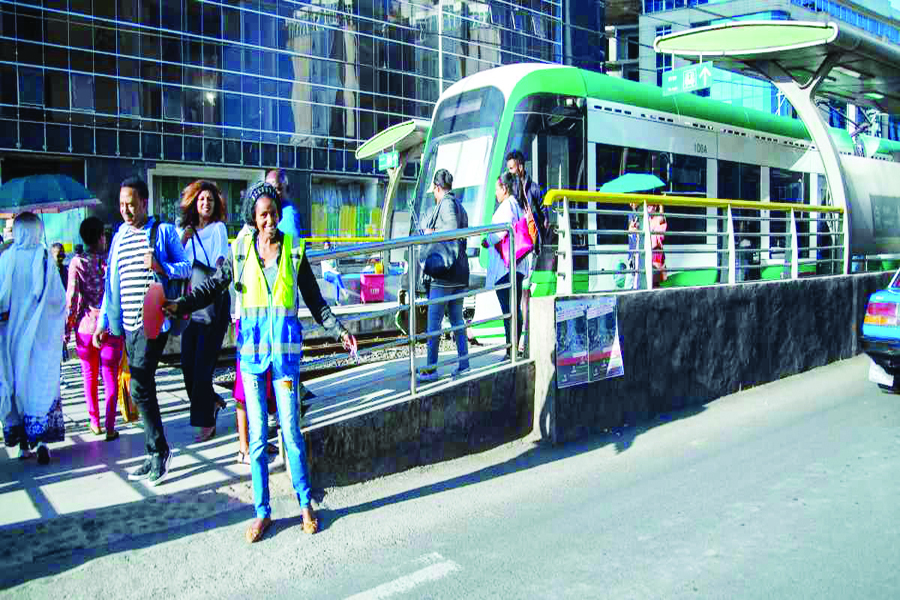
Fortune News | Jul 07,2024
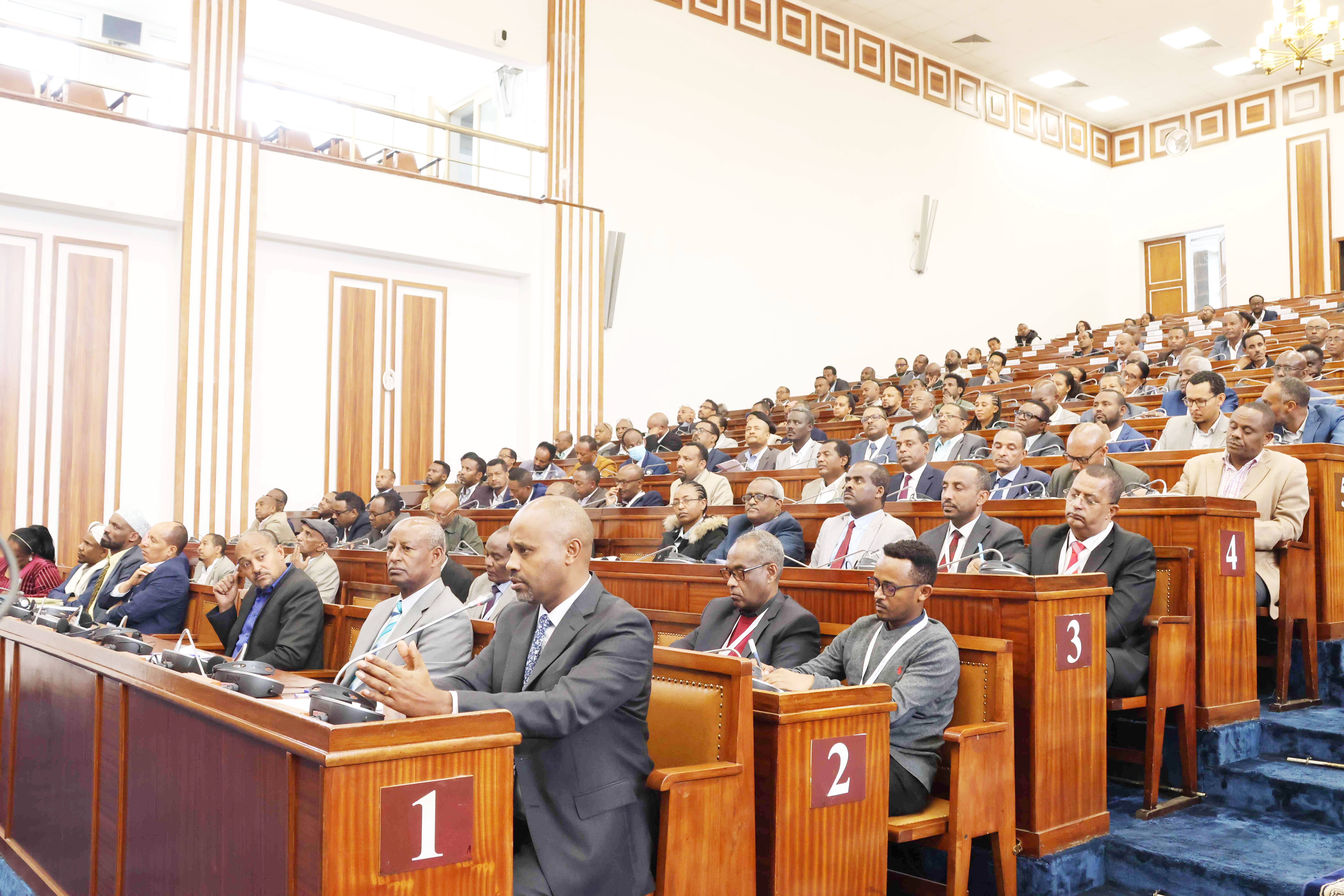
Fortune News | Jun 29,2024
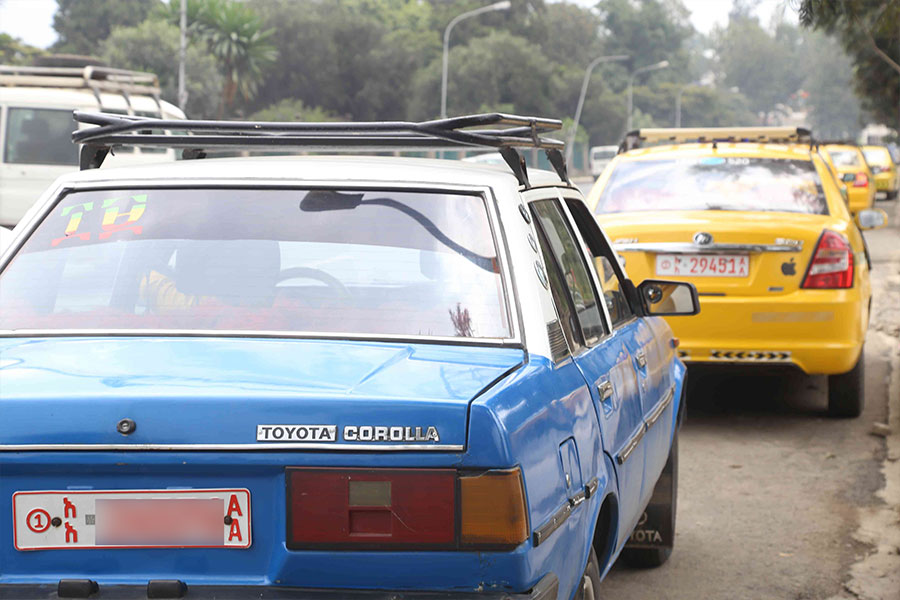
Fortune News | May 21,2022

Dec 22 , 2024 . By TIZITA SHEWAFERAW
Charged with transforming colossal state-owned enterprises into modern and competitiv...

Aug 18 , 2024 . By AKSAH ITALO
Although predictable Yonas Zerihun's job in the ride-hailing service is not immune to...

Jul 28 , 2024 . By TIZITA SHEWAFERAW
Unhabitual, perhaps too many, Samuel Gebreyohannes, 38, used to occasionally enjoy a couple of beers at breakfast. However, he recently swit...

Jul 13 , 2024 . By AKSAH ITALO
Investors who rely on tractors, trucks, and field vehicles for commuting, transporting commodities, and f...

Oct 11 , 2025
Ladislas Farago, a roving Associated Press (AP) correspondent, arrived in Ethiopia in...

Oct 4 , 2025
Eyob Tekalegn (PhD) had been in the Governor's chair for only weeks when, on Septembe...

Sep 27 , 2025
Four years into an experiment with “shock therapy” in education, the national moo...

Sep 20 , 2025
Getachew Reda's return to the national stage was always going to stir attention. Once...